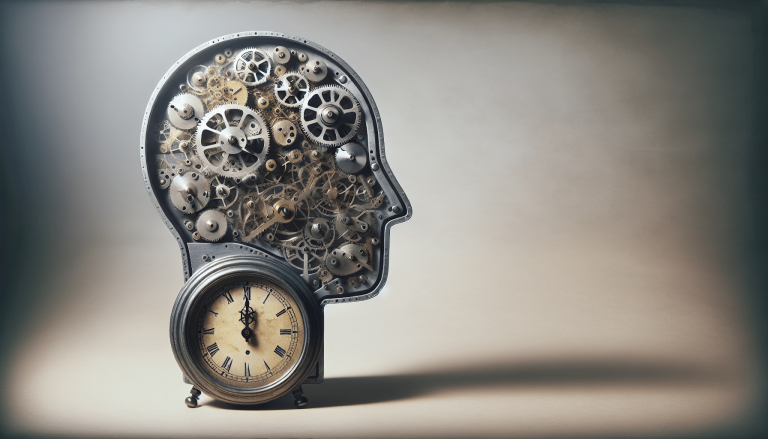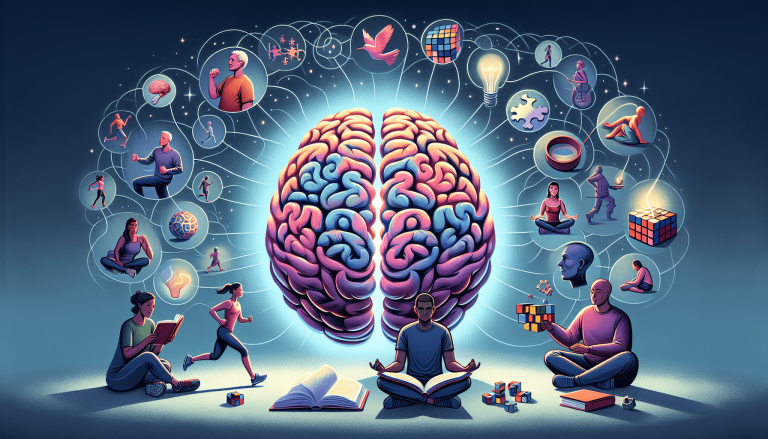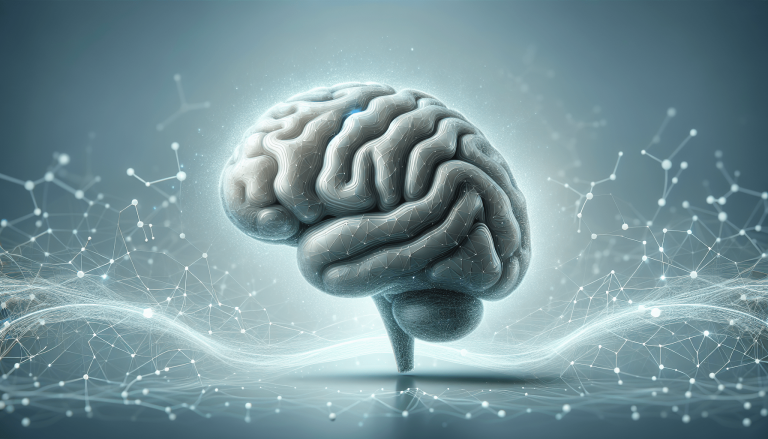What Are The 10 Warning Signs Of Dementia?
Dementia is a condition that affects countless families worldwide, and being aware of its early signs is crucial for timely intervention and care. “What Are The 10 Warning Signs Of Dementia?” provides you with essential information to help identify these key symptoms in yourself or your loved ones. By understanding these warning signs, you can take proactive steps towards seeking medical advice and support, ensuring the best possible quality of life. Dive into this informative article to equip yourself with the knowledge needed to recognize the early indicators of dementia. Have you ever noticed someone you know struggling with memory, language, or even simple tasks that they used to do effortlessly? It can be concerning, right? It’s natural to feel worried and even scared when you notice these changes in a loved one, and it might make you wonder if they are signs of dementia. Dementia can be a difficult topic to discuss, but understanding the warning signs can help you provide the support and care your loved one might need.
What Are The 10 Warning Signs Of Dementia?
When it comes to dementia, early detection and intervention can make a huge difference. Recognizing the warning signs can help you seek medical advice sooner and implement lifestyle changes that might slow down the progression of the disease. Here, we’ll discuss the 10 warning signs of dementia, aiming to give you a friendly yet detailed guide to understanding these symptoms better.
1. Memory Loss That Disrupts Daily Life
Everyone forgets things from time to time. Maybe you misplaced your keys or can’t recall the name of a new acquaintance. However, when memory loss starts to interfere with daily activities, it can be a red flag.
Signs to Watch For:
- Forgetting recently learned information.
- Asking for the same information repeatedly.
- Increasing reliance on memory aids, like notes or electronic devices.
2. Challenges in Planning or Solving Problems
You might notice that someone with dementia struggles to follow a familiar recipe or keep track of monthly bills. This difficulty in processing numbers and planning tasks is more than occasional absent-mindedness.
Signs to Watch For:
- Trouble following detailed instructions.
- Difficulty concentrating on tasks that were once easy.
- Taking much longer to complete routine chores.
3. Difficulty Completing Familiar Tasks
Whether it’s a favorite hobby or customary household chores, someone with dementia may find it hard to finish tasks they once enjoyed or did regularly without issue.
Signs to Watch For:
- Trouble remembering how to drive to a well-known location.
- Difficulty managing finances, even simple ones like balancing a checkbook.
- Problems remembering the rules of a favorite game.
4. Confusion with Time or Place
Losing track of dates, seasons, and even the passage of time can be a significant indicator of dementia. Sometimes, people might forget where they are or how they got there.
Signs to Watch For:
- Frequent loss of time or forgetting important dates.
- Feeling disoriented in familiar settings.
- Forgetting how they arrived at a particular location.
5. Trouble Understanding Visual Images and Spatial Relationships
This warning sign is a bit more subtle. If you notice someone struggling with reading, judging distances, or distinguishing colors, it could be due to dementia.
Signs to Watch For:
- Difficulty reading books or newspapers.
- Problems with judging distance when driving.
- Failing to recognize faces in familiar settings.
6. New Problems with Words in Speaking or Writing
Communication might become challenging. They may have trouble following or joining in on conversations and might even stop in the middle of a conversation, struggling to continue.
Signs to Watch For:
- Difficulty finding the right word or calling things by the wrong name (e.g., calling a watch a “hand-clock”).
- Repeating themselves within the same conversation.
- Struggling with vocabulary or writing coherently.
7. Misplacing Things and Losing the Ability to Retrace Steps
It’s frustrating enough to lose things around the house, but someone with dementia might place items in unusual places and be unable to backtrack to find them.
Signs to Watch For:
- Putting items in odd spots (like placing a TV remote in the fridge).
- Frequently losing things and blaming others for the losses.
- Struggling to remember where they put things.
8. Decreased or Poor Judgment
This can show up in various ways, from handling money irresponsibly to neglecting personal hygiene. The decline in decision-making is often striking.
Signs to Watch For:
- Falling for scams or bad financial decisions.
- Giving significant amounts of money to telemarketers or charities.
- Paying less attention to grooming and cleanliness.
9. Withdrawal from Work or Social Activities
If someone starts to pull away from hobbies, social engagements, or work activities they once enjoyed, it might be more than just a phase. Social withdrawal can be a sign that something more serious is at play.
Signs to Watch For:
- Avoiding social outings or gatherings.
- Losing interest in hobbies or activities that were once enjoyable.
- Feeling uninterested or apathetic about work.
10. Changes in Mood and Personality
People with dementia can become easily upset or anxious, especially when they are out of their comfort zone. Mood swings and noticeable changes in personality can also be signs.
Signs to Watch For:
- Easily becoming anxious, upset, or suspicious.
- Displaying uncharacteristic behaviors, such as becoming more confused or depressed.
- Experiencing mood swings without any clear reason.
Distinguishing Dementia from Normal Aging
It’s crucial to know that occasional forgetfulness or confused moments do not automatically mean dementia. Let’s compare normal aging behaviors with dementia warning signs:
| Normal Aging | Dementia Warning Signs |
|---|---|
| Forgetting names but remembering later | Forgetting names and not remembering them later |
| Making occasional bad decisions | Consistently poor judgment or decisions |
| Misplacing items but finding them later | Misplacing items and being unable to retrace steps |

Types of Dementia
Dementia isn’t a one-size-fits-all diagnosis. There are various types, each with distinct characteristics, symptoms, and progression patterns.
Alzheimer’s Disease
Alzheimer’s is the most common type of dementia, accounting for 60-80% of all cases. It involves the parts of the brain that control thought, memory, and language.
Characteristics:
- Gradual memory loss.
- Confusion with time or place.
- Difficulty with familiar tasks.
Vascular Dementia
Often resulting from strokes, vascular dementia occurs due to injuries in the brain from reduced blood flow.
Characteristics:
- Sudden onset of symptoms.
- Impaired judgment.
- Confusion occurring more rapidly.
Lewy Body Dementia
This type involves abnormal protein deposits in the brain (Lewy bodies) and shares some symptoms with both Alzheimer’s and Parkinson’s diseases.
Characteristics:
- Sleep disturbances.
- Visual hallucinations.
- Muscle rigidity or other movement issues.
Frontotemporal Dementia
This type often affects younger people and involves the parts of the brain that control behavior, personality, and language.
Characteristics:
- Changes in personality and behavior.
- Language difficulties.
- Lack of empathy.
What Should You Do If You Notice These Signs?
If you or someone you know is displaying one or more of these warning signs, it doesn’t automatically mean dementia, but you shouldn’t ignore them either. Here’s what you can do:
Seek Medical Advice
Encourage your loved one to see a doctor for a thorough medical evaluation. Diagnosis often involves:
- Comprehensive medical history.
- Physical and neurological exams.
- Cognitive and neuropsychological tests.
Monitor and Document Symptoms
Keeping a log of symptoms, including frequency and severity, can be helpful for medical professionals to make a more accurate diagnosis.
Encourage Healthy Lifestyle Choices
Though there isn’t a cure for dementia, certain lifestyle choices can support brain health and potentially slow disease progression:
- Healthy Diet: A diet rich in fruits, vegetables, and omega-3 fatty acids.
- Physical Exercise: Regular physical activity to improve cardiovascular health.
- Mental Exercise: Activities like puzzles, reading, or learning new skills.
Implement Safety Measures
Ensure a safe living environment by:
- Removing tripping hazards.
- Installing handrails and grab bars.
- Using locks and security systems as needed.

Supporting Loved Ones with Dementia
Caring for someone with dementia can be emotionally and physically challenging. Here are some tips to make the journey a little easier:
Educate Yourself
Understanding the disease can help you provide better care. There are numerous books, online resources, and support groups.
Practice Patience and Compassion
Your loved one may experience confusion and frustration. Approaching them with empathy and patience can go a long way.
Establish Routines
Routines can provide a sense of security. Keeping a consistent schedule for meals, medications, and activities can be very helpful.
Utilize Support Services
Local community organizations often offer respite care, adult day programs, and other support services.
Conclusion
Recognizing the warning signs of dementia early can make a significant difference in the quality of life for your loved one. From memory loss to changes in personality, each sign offers a clue that can prompt you to seek medical advice and start making beneficial lifestyle changes. Remember, you’re not alone in this journey. There are resources and support networks available to help you provide the best care possible.
By staying informed and proactive, you can contribute to better outcomes and ensure a supportive environment for those living with dementia. After all, early detection and compassionate care are keys to managing this challenging condition. Reach out to healthcare professionals if you notice any of these warning signs, and take the first step towards assistance and support.
Additional Resources

If you find yourself more confused lately, forget where you left small things like your phone or your glasses…. Words get stuck on the tip of your tongue or you don’t remember why you walked into a room…
>>>Watch this short documentary immediately because it may very well save your memory.
New Harvard research reveals this common household toxin wipes out your memory 3x times faster… Decreasing the blood flow to your brain and “violently attacking” your neurons and synapses on the hippocampus…
This is the part of your brain that forms episodic memories, that makes you able to think and remember, literally…
Scientists from the National Institutes of Health warn that over 200 Americans are exposed to this toxin daily… And it’s the primary reason why every 66 seconds someone in the United States develops Alzheimer’s and 1 in 3 seniors ends up with some form of dementia.
Click below to find out all about it and what you can do to improve your memory:






